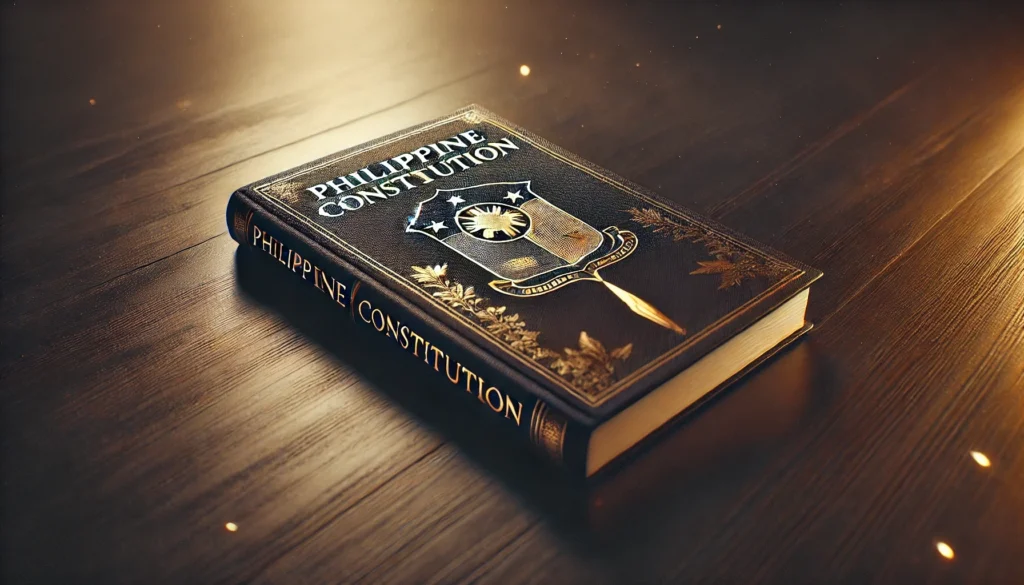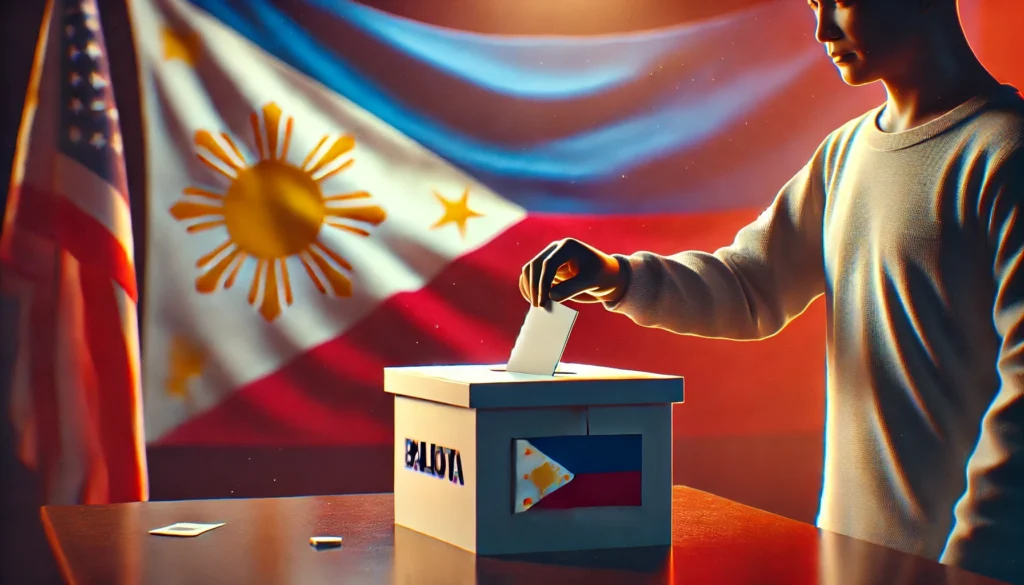The Philippine Constitution stands as the supreme law of the land, serving as the bedrock of the country’s legal and political framework. This fundamental document outlines the structure of the government, delineates the rights and duties of citizens, and establishes the principles that guide the nation. Understanding the Philippine Constitution is crucial for anyone seeking to comprehend the country’s governance, legal system, and societal values. This comprehensive exploration will delve into the history, key provisions, and significance of the Philippine Constitution, shedding light on its role in shaping the Philippines as we know it today. From its origins to its current form, the Constitution has played a pivotal role in the country’s development, reflecting the aspirations and challenges faced by the Filipino people throughout their history.
Historical Background
The Path to Constitutional Governance
The journey towards constitutional governance in the Philippines has been long and complex, marked by periods of foreign rule, revolution, and social transformation. The country’s constitutional history can be traced back to the late 19th century, during the waning years of Spanish colonial rule. The Malolos Constitution of 1899, albeit short-lived, represented the first attempt at establishing a sovereign Filipino state with a constitutional framework. This document, however, was superseded by American colonial rule, which introduced new legal and political structures to the archipelago. The subsequent decades saw the gradual evolution of Philippine governance under U.S. tutelage, culminating in the 1935 Constitution that paved the way for eventual independence.
Post-Independence Constitutional Developments
Following independence in 1946, the Philippines retained the 1935 Constitution with amendments. This document guided the newly sovereign nation through its early years, establishing a presidential system of government modeled after that of the United States. However, as the country faced new challenges and social changes, the need for constitutional reform became apparent. The 1973 Constitution, enacted during the presidency of Ferdinand Marcos, marked a significant shift in the country’s legal and political landscape. This document introduced a parliamentary form of government and granted extensive powers to the executive branch. The period of Martial Law that followed led to widespread calls for democratic reform, culminating in the People Power Revolution of 1986.
The 1987 Constitution: A New Beginning
The fall of the Marcos regime ushered in a period of democratic restoration, symbolized by the drafting and ratification of the 1987 Constitution. This document, which remains in force today, was crafted with the aim of preventing the abuses of the past and strengthening democratic institutions. It reestablished the presidential system, introduced term limits for elected officials, and expanded provisions for civil liberties and human rights. The 1987 Constitution represents a synthesis of the country’s historical experiences, incorporating elements from previous constitutions while introducing new safeguards and mechanisms for democratic governance.
Structure and Key Provisions
Preamble and National Territory
The 1987 Philippine Constitution opens with a preamble that encapsulates the aspirations and values of the Filipino people. It emphasizes the principles of sovereignty, democracy, social justice, and the rule of law. Following the preamble, Article I defines the national territory, asserting the Philippines’ claim over its land, waters, and airspace. This article is particularly significant in light of ongoing territorial disputes in the South China Sea, as it provides the legal basis for the country’s maritime claims.
Bill of Rights
Article III of the Constitution contains the Bill of Rights, a cornerstone of Philippine democracy. This section enumerates the fundamental rights and freedoms guaranteed to all citizens, including:
- Freedom of speech, expression, and the press
- Freedom of religion
- The right to due process and equal protection of the laws
- Protection against unreasonable searches and seizures
- The right to privacy
- The prohibition of torture and cruel, inhuman, or degrading treatment
The Bill of Rights serves as a bulwark against government overreach and ensures the protection of individual liberties, reflecting the country’s commitment to human rights and democratic values.
Separation of Powers
The Constitution establishes a system of checks and balances through the separation of powers among three co-equal branches of government:
- Executive Branch: Headed by the President, responsible for implementing laws and managing the day-to-day affairs of the state.
- Legislative Branch: Composed of the Senate and House of Representatives, tasked with lawmaking and oversight functions.
- Judicial Branch: Led by the Supreme Court, responsible for interpreting laws and adjudicating disputes.
This tripartite system aims to prevent the concentration of power in any single branch, fostering accountability and promoting good governance.
Local Government and Autonomy
Recognizing the diverse nature of the Philippine archipelago, the Constitution provides for local autonomy and decentralization. Article X outlines the structure and powers of local government units, from provinces down to barangays. This provision aims to ensure that governance is responsive to local needs and conditions, promoting development across the country’s varied regions.
Key Constitutional Bodies and Commissions
The 1987 Constitution establishes several independent bodies and commissions to perform crucial oversight and regulatory functions:
| Constitutional Body | Primary Function |
|---|---|
| Commission on Elections (COMELEC) | Administers elections and enforces electoral laws |
| Commission on Audit (COA) | Examines government accounts and expenditures |
| Civil Service Commission (CSC) | Oversees the civil service and ensures merit-based public employment |
| Commission on Human Rights (CHR) | Investigates human rights violations and promotes human rights awareness |
These bodies are designed to operate independently of the three main branches of government, providing additional layers of checks and balances in the Philippine political system.
Constitutional Rights and Social Justice Provisions
Economic Policies and National Patrimony
The Constitution contains provisions aimed at promoting economic development while protecting national interests. Article XII outlines the state policy on the national economy and patrimony, emphasizing:
- The promotion of a just and dynamic social order
- The conservation and development of national patrimony
- The protection of Filipino enterprises against unfair foreign competition
These provisions reflect a balance between encouraging economic growth and safeguarding the country’s resources and industries for the benefit of Filipino citizens.
Social Justice and Human Rights
A significant feature of the 1987 Constitution is its strong emphasis on social justice and human rights. Article XIII is dedicated to social justice and human rights, covering areas such as:
- Labor rights and protections
- Agrarian and urban land reform
- Healthcare and nutrition
- Women’s rights
- The rights of indigenous cultural communities
These provisions underscore the state’s commitment to addressing social inequalities and promoting the welfare of marginalized sectors of society.
Constitutional Amendments and Revisions
The 1987 Constitution provides mechanisms for its own amendment or revision, recognizing that the needs and circumstances of the nation may change over time. Article XVII outlines three methods for proposing constitutional changes:
- Through a Constituent Assembly (Congress convened for this purpose)
- Through a Constitutional Convention
- Through a People’s Initiative
Any proposed amendments or revisions must be ratified by a majority of votes cast in a national referendum. This process ensures that the Constitution remains a living document, capable of adaptation while maintaining stability and continuity in governance.
The Constitution and International Relations
Treaty-Making Power and Foreign Policy
The Constitution vests the treaty-making power in the President, subject to concurrence by the Senate. This provision ensures that international agreements entered into by the Philippines undergo scrutiny and approval by elected representatives. Article II, Section 7 of the Constitution also outlines the principles guiding the country’s foreign policy, emphasizing:
- Independence in foreign relations
- Respect for national sovereignty
- Adherence to international law
These constitutional provisions shape the Philippines’ engagement with the international community, balancing national interests with global responsibilities.
Constitutional Limitations on Foreign Involvement
To safeguard national sovereignty and interests, the Constitution places certain restrictions on foreign participation in key sectors of the economy and society. These include:
- Limitations on foreign ownership of land and natural resources
- Restrictions on foreign equity in public utilities and educational institutions
- Requirements for Filipino citizenship in certain professions and industries
These provisions reflect the Constitution’s aim of protecting national patrimony while allowing for selective foreign investment and participation in the country’s development.
The Constitution and Environmental Protection
Recognizing the importance of environmental sustainability, the 1987 Constitution includes provisions for the protection and preservation of the nation’s natural resources. Article II, Section 16 states:
“The State shall protect and advance the right of the people to a balanced and healthful ecology in accord with the rhythm and harmony of nature.”
This constitutional mandate has formed the basis for numerous environmental laws and policies, reflecting the growing awareness of ecological issues and the need for sustainable development practices.
Challenges and Debates Surrounding the Constitution
Calls for Constitutional Reform
Since its ratification in 1987, there have been periodic calls for constitutional reform or revision. Proponents of change argue that certain provisions may need updating to address contemporary challenges and opportunities. Some of the key areas of debate include:
- The form of government (presidential vs. parliamentary)
- Economic provisions, particularly those related to foreign ownership restrictions
- The structure of the legislature (unicameral vs. bicameral)
- Decentralization and regional autonomy
These discussions reflect ongoing efforts to ensure that the Constitution remains relevant and effective in guiding national development.
Balancing Stability and Flexibility
One of the enduring challenges in constitutional governance is striking a balance between stability and flexibility. While the Constitution provides a stable foundation for the legal and political system, it must also be capable of adaptation to changing circumstances. The rigorous amendment process outlined in the Constitution serves to protect its integrity while allowing for carefully considered changes when necessary.
The Constitution in Practice: Implementation and Interpretation
Role of the Supreme Court
As the highest court in the land, the Supreme Court plays a crucial role in interpreting and applying the Constitution. Through its decisions, the Court clarifies constitutional provisions, resolves conflicts between laws, and ensures that government actions adhere to constitutional principles. Some landmark decisions that have shaped the interpretation of the Constitution include:
| Case | Year | Significance |
|---|---|---|
| Oposa v. Factoran | 1993 | Established the principle of intergenerational responsibility in environmental protection |
| Francisco v. House of Representatives | 2003 | Clarified the rules on impeachment proceedings |
| Basco v. Philippine Amusements and Gaming Corporation | 1991 | Upheld the government’s power to regulate gambling |
These and other decisions demonstrate the living nature of the Constitution, as its principles are applied to new and evolving situations.
Constitutional Commissions and Good Governance
The independent constitutional commissions established by the 1987 Constitution play a vital role in promoting good governance and accountability. Their functions and impact include:
- The Commission on Audit’s role in uncovering and preventing corruption through rigorous financial examinations
- The Civil Service Commission’s efforts to professionalize the bureaucracy and implement merit-based systems
- The Commission on Human Rights’ investigations and advocacy work in protecting civil liberties
These bodies contribute to the realization of constitutional principles in day-to-day governance, supporting the rule of law and democratic practices.
The Constitution and Philippine Society
Civic Education and Constitutional Awareness
Promoting understanding of the Constitution among citizens is crucial for its effective implementation and for fostering a culture of civic responsibility. Educational institutions, civil society organizations, and government agencies play important roles in constitutional education efforts. These initiatives aim to:
- Increase public awareness of constitutional rights and duties
- Encourage active citizenship and participation in democratic processes
- Foster a deeper understanding of the country’s legal and political systems
By enhancing constitutional literacy, these efforts contribute to the strengthening of Philippine democracy and the rule of law.
The Constitution and National Identity
The 1987 Constitution not only serves as a legal document but also as a reflection of national values and aspirations. Its provisions on language, culture, and national symbols contribute to the shaping of Filipino identity in a diverse and multicultural society. The Constitution’s emphasis on social justice, human rights, and democratic principles provides a shared framework for national unity and progress.
Conclusion
The Philippine Constitution stands as a testament to the country’s complex history, diverse society, and democratic aspirations. As the supreme law of the land, it provides the foundation for governance, protects individual rights, and outlines the nation’s core values and principles. While facing ongoing debates and challenges, the Constitution remains a living document, adapting through interpretation and occasional amendment to meet the evolving needs of Philippine society.
Understanding and upholding the Constitution is not just the responsibility of legal experts and government officials but of every Filipino citizen. As the country continues to navigate the complexities of the 21st century, the Constitution will undoubtedly play a crucial role in shaping its path forward, guiding the nation towards greater prosperity, justice, and democratic maturity.
The enduring relevance of the Philippine Constitution lies in its ability to provide a stable framework for governance while allowing for the flexibility needed to address new challenges. As the Philippines faces issues such as globalization, technological change, and environmental concerns, the principles enshrined in the Constitution will continue to serve as a beacon, guiding the nation’s responses and ensuring that the rights and welfare of the Filipino people remain at the forefront of national development.
Disclaimer: This blog post is intended for informational purposes only and should not be considered as legal advice. While every effort has been made to ensure the accuracy of the information presented, readers are encouraged to consult official sources and legal experts for definitive interpretations of constitutional provisions. If you notice any inaccuracies in this post, please report them so that we can promptly make corrections.




